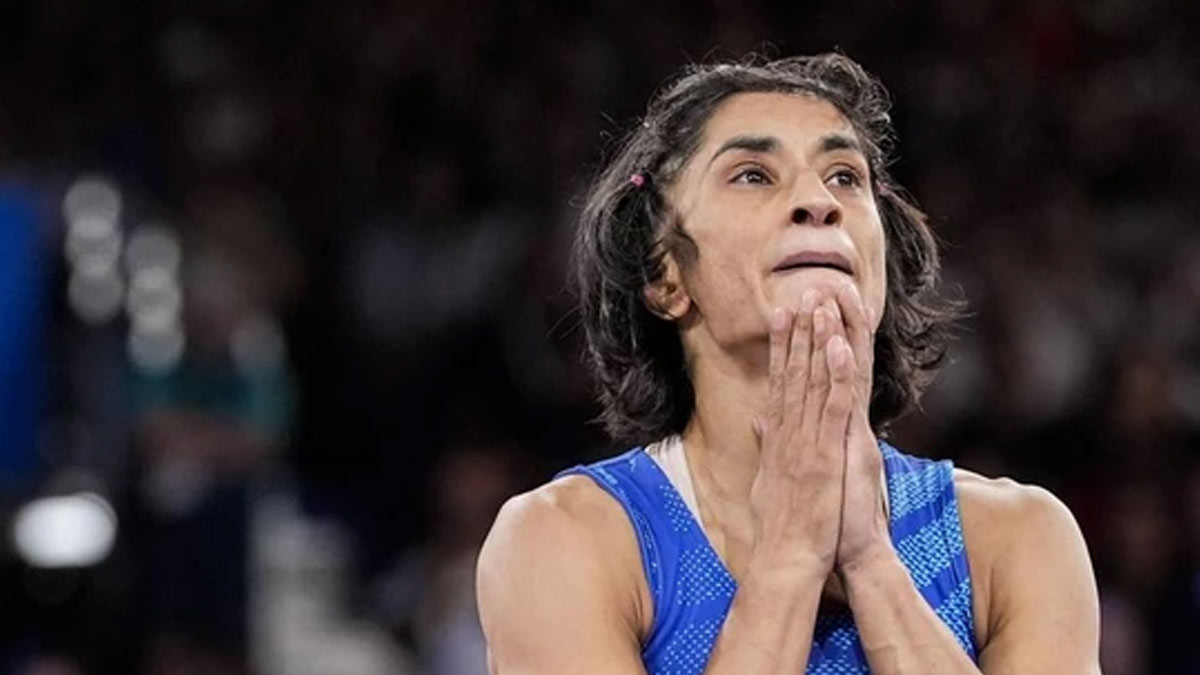
The shocking disqualification of Indian wrestler Vinesh Phogat from the Paris Olympic finals due to a mere 100g weight discrepancy has sparked a crucial conversation about the physical and mental health struggles faced by female athletes. As Phogat appeals for a shared silver medal, her experience underscores the crushing weight of expectation, the fragility of physical health, and the often-overlooked toll on mental well-being. In such a series of events, it is important to understand how weight fluctuations may impact women and the mental health struggles of female athletes. We spoke to our expert Dr Anish Nagpal, Laparoscopic Bariatric (Obesity) Surgeon and Gastro Surgeon, Krishna Shalby Hospital, SG Highway, Ghuma, Ahmedabad, who shared insights on the same.
Table of Content:-
Understanding The Science Of Weight Fluctuations In Female Athletes
How Easy Is It For A Woman To Reduce Weight In A Short Span?
Is There A Difference In Weight In The Morning And Then At Night On The Same Day?
What Role Do Hormones Play In Weight Gain/Loss in A Woman's Body?
What Are The Long-term Consequences Of Repeated Weight Cycling?
Mental Health Struggles Of Female Athletes In Weight Management
What Are The Signs And Symptoms Of Disordered Eating Or Body Image Issues?
How Can Female Athletes Manage Competition And Weight-related Stress?
Understanding The Science Of Weight Fluctuations In Female Athletes
How Easy Is It For A Woman To Reduce Weight In A Short Span?

Losing weight quickly can be challenging for women due to several factors, including metabolic rate, hormonal fluctuations, and lifestyle habits. “While it's possible to see rapid weight loss through very restrictive diets or intense exercise, these methods are often unsustainable and may lead to regaining the lost weight. Instead, gradual and steady weight loss through balanced nutrition and regular physical activity is more effective and healthier in the long term,” said Dr Nagpal.
Is There A Difference In Weight In The Morning And Then At Night On The Same Day?
“Yes, there is typically a difference in weight between morning and night. Most people weigh less in the morning because of overnight fasting and the loss of water weight from breathing and sweating. Throughout the day, food and fluid intake, along with fluctuations in water retention and digestive waste, can cause an increase in weight by the evening,” added Dr Nagpal.
Also Read: Planning To Lose Weight? Expert Lists Dangers of Rapid Weight Loss
Physical Struggles Of Female Athletes In Weight Management
What Role Do Hormones Play In Weight Gain/Loss in A Woman's Body?

Hormones play a crucial role in regulating weight in women. For instance, insulin regulates blood sugar levels and fat storage, while cortisol, the stress hormone, can lead to weight gain, particularly around the abdomen. Hormones like oestrogen and progesterone, which fluctuate during the menstrual cycle, pregnancy, and menopause, can also affect appetite, metabolism, and fat distribution, making weight management more challenging.
What Are The Risks Of Rapid Weight Loss In Female Athletes?

According to StatPearls, rapid weight loss from extreme dieting, excessive exercise, fluid restriction, medication use, or fasting without proper electrolyte supplementation can cause electrolyte imbalances, decreased athletic performance, and possible organ damage.
"Rapid weight loss in female athletes can pose serious health risks, including dehydration, electrolyte imbalances, decreased bone density, and impaired cognitive function. These effects are often the result of extreme dietary restrictions, excessive exercise, and other unsafe practices," highlighted Dr Nagpal. It can also lead to hormonal imbalances, including disruptions in menstrual cycles and reductions in oestrogen levels, which are crucial for bone health.
To mitigate these risks, female athletes must work with nutritionists and sports physicians who can create personalised, gradual weight management plans that emphasise adequate hydration, balanced nutrition, and proper rest. Education about the dangers of rapid weight loss and promoting healthy weight loss practices within sports organisations can also help reduce the pressure to lose weight quickly.
What Are The Long-term Consequences Of Repeated Weight Cycling?
Dr Nagpal said, "Weight cycling places significant stress on the body, often leading to long-term complications. This practice can lead to metabolic disturbances, including reduced metabolic rate and altered fat distribution, making it harder to maintain a stable weight over time.
It can also exacerbate bone density loss, increasing the risk of osteoporosis and stress fractures. Moreover, the constant fluctuation in weight can cause chronic inflammation and cardiovascular issues and has been associated with menstrual irregularities and long-term fertility problems."
Also Read: Calorie Deficit-Diet: Expert Explains This Go-To Weight Loss Diet And Its Impact On The Body
Mental Health Struggles Of Female Athletes In Weight Management
How Does Weight Pressure Affect Mental Well-being?

"The pressure to maintain a certain weight or body composition can have a profound impact on female athletes' mental well-being. This pressure often stems from internal and external sources, such as coaches, peers, or societal expectations. It can lead to disordered eating behaviours and a negative body image," highlighted Dr Nagpal.
Athletes may develop anxiety, depression, and a sense of isolation as they struggle to meet these expectations. The constant focus on weight can detract from the joy of the sport and lead to burnout or withdrawal from competition.
What Are The Signs And Symptoms Of Disordered Eating Or Body Image Issues?
- Signs of disordered eating or body image issues in female athletes can include extreme preoccupation with food, calories, and body weight, avoiding meals or eating in secret, and fluctuations in weight.
- Physical symptoms may include fatigue, frequent injuries, menstrual irregularities, and gastrointestinal problems.
- Emotionally, athletes may exhibit mood swings, irritability, or withdrawal from social interactions. Early identification and intervention are essential to prevent these behaviours from developing into full-blown eating disorders.
How Can Female Athletes Manage Competition And Weight-related Stress?
- Female athletes can cope with the stress and pressure of competition and weight management by practising mindfulness and relaxation techniques, such as deep breathing exercises, meditation, and yoga.
- Establishing a balanced routine that includes adequate sleep, healthy nutrition, and regular physical activity is also crucial.
- Seeking support from a mental health professional, such as a sports psychologist, can provide athletes with strategies to manage anxiety and build resilience.
- Additionally, surrounding oneself with a supportive community prioritising overweight well-being can help reinforce positive behaviours and attitudes.
[Disclaimer: This article contains information provided by an expert and is for informational purposes only. Hence, we advise you to consult your own professional if you are dealing with any health issues to avoid complications.]
Also watch this video
How we keep this article up to date:
We work with experts and keep a close eye on the latest in health and wellness. Whenever there is a new research or helpful information, we update our articles with accurate and useful advice.
Current Version